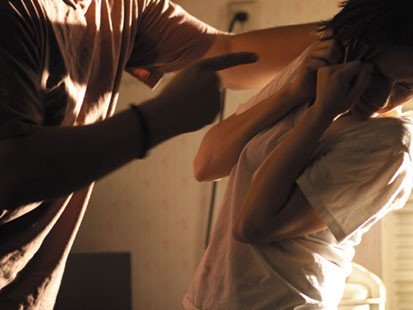
“We need laws against domestic violence. It is the biggest issue in our society today. It is prevalent at various levels, from beating to murder”, Human Rights Commission of Pakistan Secretary General I.A Rehman said at a panel discussion Providing Protection with Dignity and Strategies to Combat Violence against Women organised by the Dastak Charitable Trust on Wednesday.
Rehman added that acid attacks had increased. He stressed the need to implement laws, and change the mentality of police, and judiciary towards women. He urged the government to review laws after every three years.
He said there should be a clear line drawn between shariah and prohibitions adopted from the feudal system. He also demanded that the government legislate to ensure equal wages for women. Rehman said more shelter homes for women were needed.
Lawyer Hina Jilani, said laws to protect women were weak, but fortunately the number of women in jails had been reduced to half. Offences of zina and rape had also been separated, she said.
Jilani said there were loopholes in the law and there was no complaint mechanism on the ground. She said women’s rights activists’ primary demand was a proper complaints mechanism. She urged the government to give up conservative positions. She added that only the government could create a healthy environment for women.
MNA Shaista Pervaiz said that the Women Protection Act had been passed, and the government was presenting a complete package on women’s issues on March 8. She said the chief minister would soon announce that all decision making institutions should have adequate representation of women. She said the government was not slow about legislation, and was committed to the cause of women but the mindset of the society could not be changed within days.
Muhammad Waseem, CEO and founder of Interactive Resource Centre, spoke about the importance of engaging men and boys to eliminate violence against women.
Minister for Population Welfare Begum Zakia Shahnawaz said the government welcomed women rights activists’ recommendations and was committed to women’s empowerment.
“The government should take the lead in improving women’s lives through legislation and advocacy. Its time to impose an emergency on the state of women in Pakistan today,” said Munizae Jahangir, a journalist.
At the end of the panel discussion, a five-minute documentary about Dastak, a shelter home founded in 1990, was screened. The film showed how the shelter home had helped women dealing with despair, fear, and other social issues.
Published in The Express Tribune, February 20th, 2014.




1732626034-0/BeFunky-collage-(92)1732626034-0-165x106.webp)



1724486955-0/Untitled-design-(12)1724486955-0-270x192.webp)








COMMENTS
Comments are moderated and generally will be posted if they are on-topic and not abusive.
For more information, please see our Comments FAQ